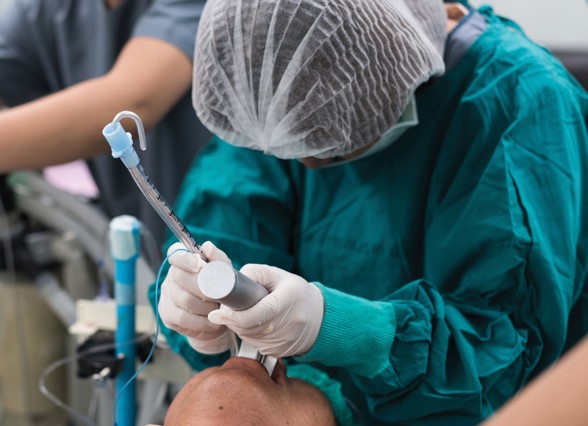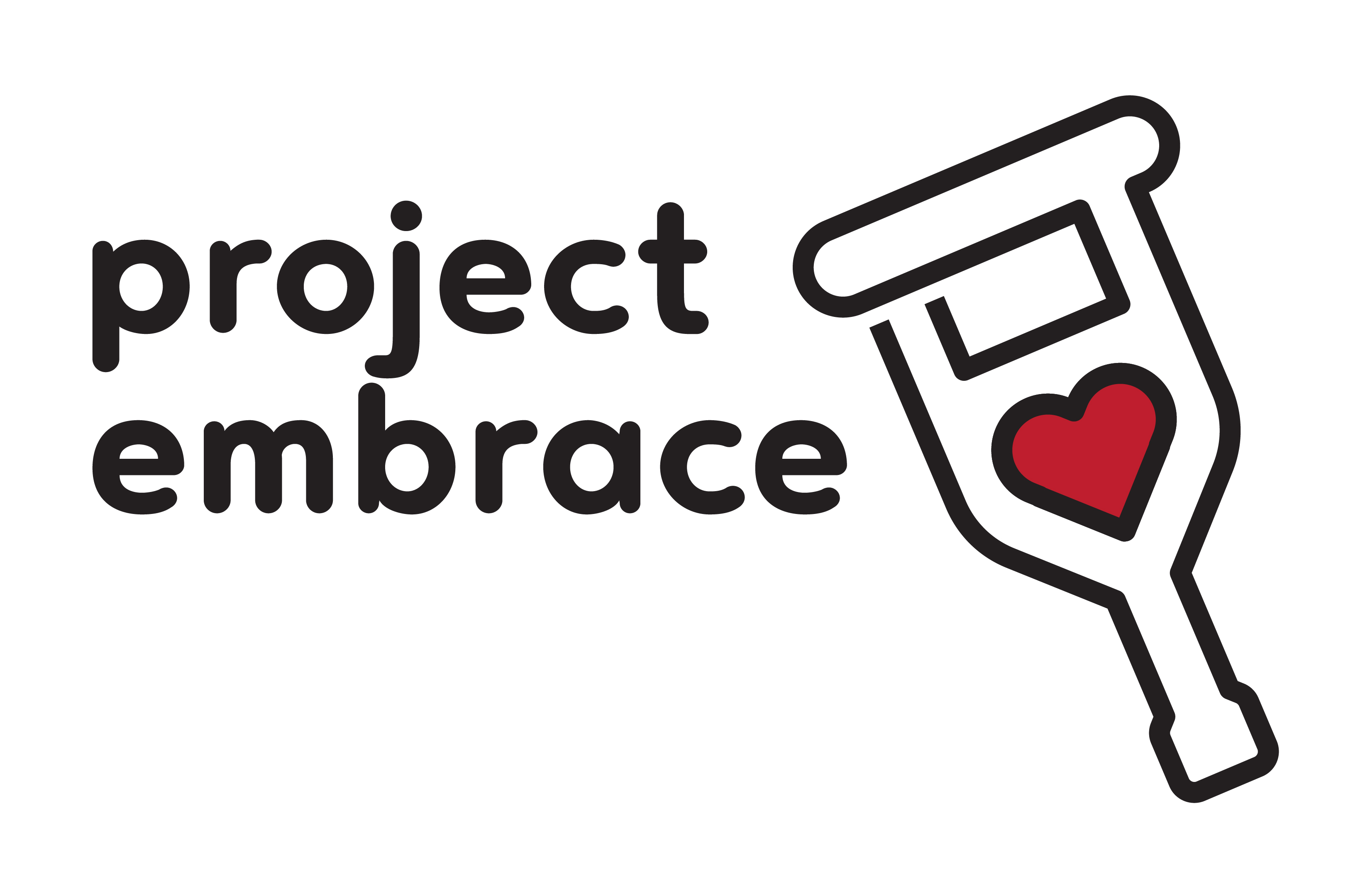Gabrielle Hoyer
PhD Candidate | Healthcare AI and Digital Twins
Developing scalable AI frameworks and digital twin systems that integrate diverse medical imaging data, predictive modeling, and precision analytics to enhance musculoskeletal care and advance clinical outcomes.
Contact MeAbout Me
My introductionBiomedical Engineer & PhD Candidate driven by a commitment to bridging advanced AI research with practical, patient-centered impact. My work blends rigorous scientific methods, multi-stakeholder collaborations, and thoughtful consideration of clinical workflow to create accessible, forward-looking healthcare solutions. By drawing on a combination of academic training, stakeholder engagement, and translational partnerships, I aim to ensure that technology moves seamlessly from the lab to the clinic.

Areas of Focus
- Approaches for real-world adoption of healthcare innovations
- User-focused clinical workflow integration and design
- Collaborative, interdisciplinary leadership and research management
Stakeholder Interviews
Research
Strategic Leadership
Qualification
My personal journeyBS in Biomedical Engineering, Neural Interfaces
University of UtahMS in Biomedical Engineering, Neural Interfaces
University of UtahPhD in Bioengineering, Machine Learning
UCSF-UC BerkeleyUndergraduate Research Assistant
Neural Information Lab, University of UtahUndergraduate Research Assistant
Mechanisms of Synaptic Functions Lab, University of UtahProduct Development Engineering Intern
Ortho Development, SLC, UTData Science Impact Fellow
Sorenson Impact Center, SLC, UTGraduate Researcher
Computer Vision in Anesthesiology Lab, University of UtahSoftware Development Intern
Compassion International, Colorado Springs, COTechnical Lead
A.I. Healthcare Venture, NSF National I-Corps Program, Winter CohortPhD Researcher
Musculoskeletal Quantitative Imaging Research Group, UCSF, CAVolunteer Lab Technician
Orthotics and Prosthetics Department, Shriners Hospital for Children - SLC, UTDirector of Research + Project Development
Project Embrace nonprofit - SLC, UTCollege of Engineering Ambassador
University of Utah - SLC, UTChief Development Officer
Project Embrace nonprofit - SLC, UTResearch Projects
What i'm working onDigital Twin Systems
& Precision Medicine
Foundation Models &
Model Generalization
Representation Learning
& Efficient Data Utilization
Medical Data Systems:
Strategic Insights & Clinical Operations
Portfolio
Previous workLet's Work Together
Join me in creating AI solutions to alleviate healthcare provider burnout, extend care to underserved communities, and enhance patient quality of life. Let's make a positive impact together.
Contact Me
Academic Works
Publications and AwardsDesign and Evaluation of Automatic System for Medical Dataset Development
Hoyer, G., Tong, M.W., Bhattacharjee, R. et al. Clinical Utility of Foundation Segmentation Models in Musculoskeletal MRI: Biomarker Fidelity and Predictive Outcomes. (2025). (under review at Nat. Commun.).
Foundations of a Knee-Joint Digital Twin
Hoyer, G., Gao, K.T., Gassert, F.G. et al. Foundations of a knee joint digital twin from qMRI biomarkers for osteoarthritis and knee replacement. npj Digit. Med. 8, 118 (2025).
An Evaluation on Model Fairness in a Self-Supervised Learning Paradigm
Huang, H., Hoyer, G., Hess, M. et al. Demographic Bias Always Affect Model Fairness? An Evaluation with Musculoskeletal Imaging. (2025).
Validation of the Clinical Viability of ML Tools and Automated Analysis: A Case Study in Thigh Muscle Segmentation.
Liu, F., Hoyer, G., Ziegeler K. et al. Validation of a Fully Automized Volumetric Thigh Muscle Segmentation Pipeline Using Segment Anything. In Proceedings of the OARSI World Congress, Incheon, South Korea, (2025).
MskSAM - Foundation model for Musculoskeletal MRI Segmentation
Hoyer, G. & Tong, M.W. et al. Towards a Generalizable Foundation Model for Multi-Tissue Musculoskeletal MRI Segmentation. In Proceedings of the 32nd Annual Meeting of ISMRM, Session: The Future of AI in MRI: Emerging Technologies & Directions, Singapore, (2024), 8045. (Awarded Magna Cum Laude).
Quantitative MRI Interpretable 100D Feature Space
Hoyer, G., Gao, K.T., et al. Quantitative MRI Interpretable 100D Feature Space of Knee Osteoarthritis. In Proceedings of the 31st Annual Meeting of ISMRM, Session: ML/AI New Ideas, Toronto, Ontario, Canada, (2023), 993.
Comparison of Procedural Distancing in Airway Management
Hoyer, G., Runnels, S. et al. Comparison of Procedural Distancing of Primary and Advanced Intubation Techniques. In Proceedings of the Difficult Airway Society Annual Meeting, UK, (2020).
Collection and Strategic Use of Intubation Data
Hoyer, G., Runnels, S., Kuck, K. et al Automatic Video Laryngoscope Archiving System, First Pass Rates in Archived Intubations. In Proceedings of the Society for Technology in Anesthesia Annual Meeting, Austin, TX, (2020).
Investigating Beta-Coherence in Parkinsonian Rats: Self-Directed Motion Effects
Dorval A., Polar C., Hoyer, G. Cortico-Subthalamic Beta-Coherence Suppression During High-Intensity, Self-Directed Motion in a Parkinsonian Rat Model. In Proceedings of the 9th International IEEE/EMBS Conference on Neural Engineering (NER), IEEE Engineering in Medicine and Biology Society, San Francisco, CA, (2019), 491.
Towards the Provision of Sustainable Medical Materials to Low and Middle-Income Countries
Sudabattula, M. & Hoyer, G. Towards the Provision of Sustainable Medical Materials to Low and Middle-Income Countries: A Non-Profit Case Study. In Proceedings of the 2017 International Health Conference, Session: Health Inequalities and Big Data, St. Hugh's College, Oxford, UK, (2017), 178.
Google PhD Fellowship Nominee
2025Nominated for the Google PhD Fellowship, a highly competitive program recognizing outstanding doctoral researchers. Selected by UCSF as a nominee for my work in AI for health and human-centered tools. Proposal: JointAI, a knee digital twin that uses MRI biomarkers to track disease progression, estimate risk, and simulate interventions.
Fletcher Jones Fellowship Nominee
2025Nominated for a competitive research fellowship recognizing outstanding dissertation research and potential for significant contributions to health sciences.
UCSF Discovery Fellowship
2023 – PresentDiscovery Fellows are chosen for their leadership potential, excellence in research, community-mindedness, and communications skills. The role entails advocating for UCSF's foundational and biomedical science programs while championing innovative research within healthcare.
NIH T32 BioE Training Grant
2021 – 2022NSF National I-Corps Program Grant
2021The National Science Foundation's Innovation Corps (I-Corps™) program offers experiential education to equip researchers with valuable insights into entrepreneurship, business startup, and industry demands and challenges. I-Corps serves as a catalyst for turning inventions into real-world impact, combining scientific exploration with industrial discovery in a rigorous, relevant, and evidence-based environment. This program empowers researchers to accelerate the transition of lab concepts to market-ready solutions, contributing to a national innovation network that transforms scientific research into societal benefits.
NASA Space Grant Fellowship
2019 – 2021Initiated in 1989, the National Space Grant College and Fellowship Project, or Space Grant, is a national network of colleges and universities aimed at expanding opportunities for Americans to engage in NASA’s aeronautics and space projects. This includes supporting science and engineering education, research, and public outreach efforts to enhance understanding and participation in space exploration and related fields.
Chevron Scholarship for Women in Stem
2018 – 2019The Chevron Scholarship for Women in Science, Technology, Engineering, and Math (STEM) fields supports self-identified women majoring in STEM. Created for the Women's Resource Center, this scholarship aims to encourage and assist women pursuing education and careers in science, technology, engineering, or math.
Bioscience Undergraduate Research Scholar
2015 – 2017Awarded by the Department of Biology at the University of Utah, this recognition supports and acknowledges outstanding undergraduate students engaged in bioscience research. The program aims to foster a deeper understanding and passion for scientific inquiry among bioscience students through active participation in research projects and initiatives.
NSF Research Experiences for Undergraduates Grant
2015 – 2016Associated with the Neural Information Lab and Dr. Chuck Alan Dorval, the NSF Research Experiences for Undergraduates (REU) program encourages active research participation by undergraduate students in areas funded by the National Science Foundation. This initiative aims to provide undergraduates with hands-on research experience, fostering a deeper engagement and understanding in their field of study.
ACCESS Program for Women in STEM Scholar
2014 – 2015A scholarship award and first-year experience designed specifically for incoming fresh-women with a keen interest in the sciences, including math, biology, chemistry, or physics. The ACCESS Program supports and encourages women embarking on their journey in STEM fields, aiming to provide them with foundational support, mentorship, and engagement in their chosen disciplines.
Skills
My technical growthSkill Level Guide
Research and Analytics
9+ years DevelopmentExperimental Design
(Hypothesis formulation, study protocols)Statistical Data Analysis
(Regression, hypothesis testing, inference)Predictive Analytics
(Time-series modeling, forecasting)Statistical Modeling
(Mixed-effects, survival analysis)Technical Writing
(Manuscripts, grant proposals, whitepapers)Oral Communication
(Presentations, stakeholder briefings)Independent Research
(Study conception, implementation)Biomedical Informatics
(Clinical databases, healthcare analytics)Machine Learning & Data Science
5+ Years DevelopmentPython Data Stack
(NumPy, SciPy, Pandas, Jupyter, Statsmodels)Machine Learning
(scikit-learn, XGBoost, LightGBM, AutoML tools such as Auto-Sklearn)Deep Learning
(PyTorch, TensorFlow, PyTorch Lightning, Hugging Face Transformers)Geometric Deep Learning
(PyTorch Geometric, Graph Neural Networks)Computer Vision & Medical Imaging
(OpenCV, MONAI, SimpleITK, nibabel)Distributed Computing
(CUDA, PyTorch DDP, MPI, Slurm)Data Visualization
(Matplotlib, Plotly, Seaborn, PyVista)Software & Web Development
6+ Years DevelopmentFrontend Development
(JavaScript, TypeScript, React.js, CSS)Backend Development
(Node.js, FastAPI, Flask)Database & Cache Systems
(Redis, MongoDB)API & Integration
(RESTful API design, WebSockets, GraphQL)DevOps & Cloud
(Docker, AWS/GCP/Azure)Version Control & Collaboration
(Git, GitHub, GitLab)Technical & Domain Knowledge
5+ years DevelopmentBiomedical Informatics
(EHR data, HL7/FHIR)MRI Physics & Imaging
(T1/T2 imaging sequences, quantitative MRI methods)MATLAB Programming
(Signal processing, quantitative simulation)Medical Device & Clinical Hardware Understanding
(Knowledge of clinical instrumentation, device interoperability)Clinical Workflow Integration
(Technical integration of new technologies into clinical systems and existing healthcare IT infrastructure)Healthcare Innovation & Strategic Implementation
5+ years DevelopmentProduct Development & Innovation Strategy
(Market fit, customer discovery, NSF I-Corps methodology, translation to clinical practice)Clinical Development & Validation
(Pilot studies, regulatory submissions for medical technologies)Regulatory Strategy & Compliance
(FDA regulations, HIPAA compliance strategies, ethics & data privacy)Healthcare Project & Program Management
(Project timelines, milestones, agile methodology, stakeholder engagement)Public Speaking & Scientific Communication
(Presentations, industry & academic forums)Stakeholder & Market Analysis
(Clinician & stakeholder interviews, usability studies, needs assessments)Team Leadership & Interdisciplinary Collaboration
(Managing research teams, collaboration with clinicians, engineers, and students)Engineering & Design Methodology
(Engineering prototyping, iterative development, user-centered design)Contact Me
Get in touchgabrielle_hoyer@berkeley.edu
Location
Department of Radiology and Biomedical Imaging, UCSF1700 4th St., Suite 201
San Francisco, CA 94158





